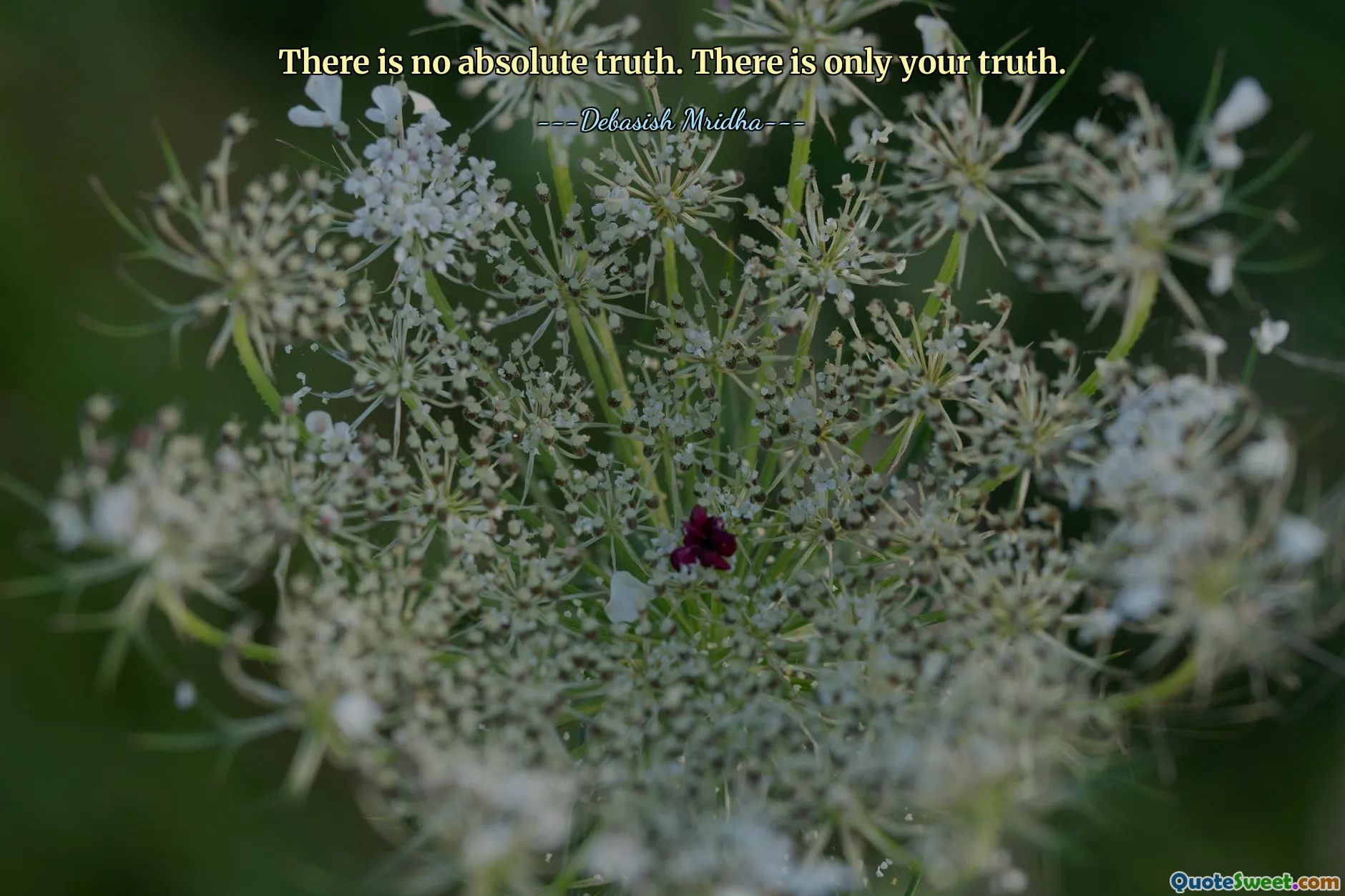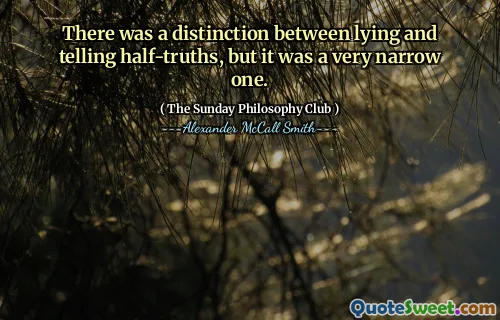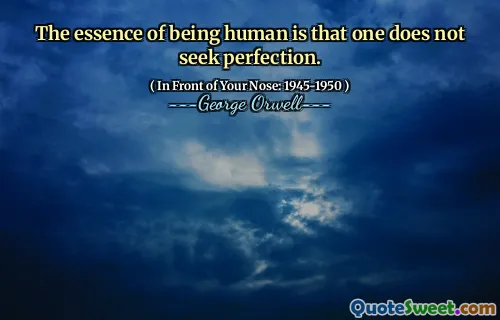
There is no absolute truth. There is only your truth.
This quote challenges the classical notion of an objective, universal truth by emphasizing the subjective nature of our realities. It suggests that what we consider to be "truth" is often deeply personal, shaped by our experiences, beliefs, and perceptions. This idea resonates with the philosophical stance of relativism, where truth varies from person to person instead of existing as a fixed entity independent of us.
Reflecting on this quote, it prompts a reconsideration of how we engage with others' viewpoints. If everyone harbors their own "truth," it may help foster empathy and openness rather than rigid judgment or dogmatism. Understanding that our truths are not absolute can allow for more constructive dialogues where different perspectives coexist without being labeled as simply right or wrong.
However, this does not mean all interpretations hold equal weight in every context, especially in matters governed by empirical evidence or ethics. Yet, it's a reminder of the deeply human element in how understanding is constructed. It acknowledges that personal experiences and emotional contexts color our perception of the world, and these individual truths define much of our identity and meaning.
Overall, this quote serves as a reminder to respect diversity in thought and accept the fluid, dynamic nature of truth as experienced individually. It encourages humility in asserting one's beliefs as "the truth" and inspires curiosity about the multifaceted realities that others experience.











